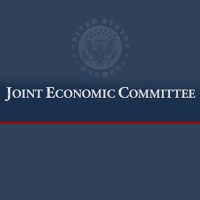At a hearing held by the Congressional Joint Economic Committee (JEC), committee members and expert witnesses said the modest economic recovery is being weighed down by regulations and the tax code.

“In my home state of Ohio, we’ve made strides in encouraging businesses to come to our state and our unemployment rate has dropped at a steady pace over the past few years,” JEC Chairman Pat Tiberi (R-OH) said. “However, that hasn’t been true for every part of the state. We can do better, especially for the communities where folks feel they are being left behind. In Ohio that is in counties in Appalachia and in areas surrounding urban centers of Ohio; the dynamics of the rural and urban poor couldn’t be more different.”
The hearing, held last week, was entitled, “The Decline of Economic Opportunity in the United States: Causes and Consequence.”
“States vary in their performance, partly because they opt for different tax and labor-market policies. State-based policy changes can be helpful to growth, but it is important to encourage genuine growth rather than mere transfers of prosperity from one region to another … The most important remedy for local ills is a growing national economy. A rising tide may not lift all boats equally, but draining the ocean will not help those with the least forward momentum,” Tim Kane, a fellow at the Hoover Institution, said.
Kane also said regulations were a contributing factor to the decline of startups. He explained they were a disincentive for potential entrepreneurs and encouraged workers to stay in current positions with established employers who were better equipped to handle the regulatory onslaught.
John Lettieri, co-founder of the Economic Innovation Group, explained that a contributing factor to the weak recovery is the decline of economic dynamism – that is the rate and scale of firm births and deaths.
“We see the startup rate has collapsed. At the core of the broader decline in economic dynamism is a steep drop in new firm formation. This holds across all industries and all regions of the country … Even as the broader economy rebounded, the startup rate has barely budged … this is a deeply troubling development,” Lettieri said.
Lettieri pointed out that established firms tend to shed more jobs than they create in an average year while new firms are consistently the most potent engine for net job creation.
Rep. Barbara Comstock (R-VA) said 78 percent of venture capital goes to just three states and that lack of access to capital for would-be entrepreneurs is one of the biggest inhibitors to new businesses.